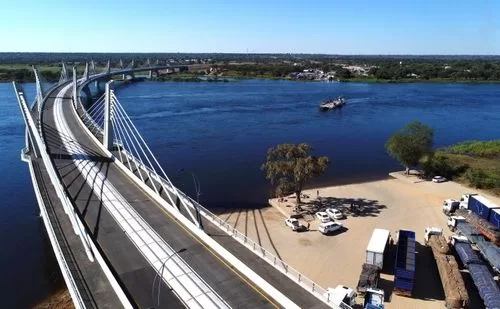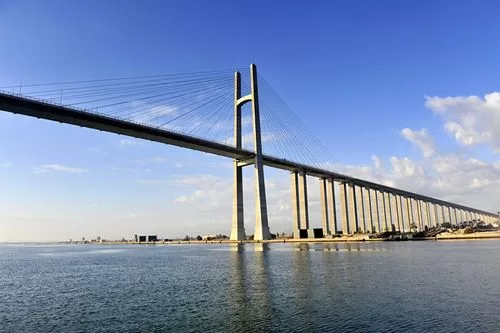Many years there has been an idea about building a bridge that would connect the African and European continents. The most reasonable place to make such bridge to Africa would be the Strait of Gibraltar where Africa and Europe are only 14 kilometers apart at the narrowest point. Nonetheless, a number of geological, technical or environmental, and political challenges offer a reminder that the realization of such a project remain just a dream.
Geological barriers
The major difficulty stems from the geological and oceanographical characteristics of the Strait of Gibraltar. Though the distance is not so big, the water depth is a giant obstacle for people to overcome. It measures at its widest part about thirty five kilometers with depths going down to about nine hundred meters which was a challenge that any engineer that wanted to construct a bridge would face.
Traditional bridges like suspension rely on large support anchored to the seabed, but the debt here would require innovative and costly solution. Subsequently, building stable supports in such deep waters, even with the use of current technology is quite challenging. Proposal for floating bridge can also be good idea but it is not viable since because of Atlantic’s unfriendly conditions and powerful sea current.
The cost of building a bridge of this magnitude might be easily estimated, the final sum starts at few tens of millions. Concept designs for an undersea tunnel, which is discussed as an option to the bridge, over calculations of €5 billion at the most allow only rough approximations. This was excluding any cost that may be incurred in the future such as the interior and exterior maintenance of the structure and the unique engineering required in this part of the world.

Furthermore, any bridge or tunnel must be long-span and high-performance, while being able to resist earthquake, ocean currents, and storms. This would take many years of construction and perhaps the constantly recurring expenditures of … tendering such a structure’s maintenance might outweigh the benefits of joining the continents.
Environmental concerns
Construction projects face environmental issues because the Strait of Gibraltar is home to aquatic life. Constructing a bridge could d harm the sea life habiting the area and disrupt all organisms and species.
Besides, such changes of water flow regime and sediment distribution may also bring negative effects to both the Mediterranean and Atlantic Ocean in terms of the ecosystem in the long run. The likely findings of environmental impact assessments for such a project would probably give a base to cynicism and question the viability and morality of building a bridge in this area.
Morocco and Spain have had talks about having an undersea tunnel but political issues still remain an issue. Both countries would have to work closely to share this huge financial and organizational load. Apart from politics, dismal economic conditions, and inconsistent regulations cannot work well to support the unified effort towards planning and executing such a sensitive project.
Social factors like control of migration and security and trade imbalances also have some important role in not constructing bridge or tunnel. There are always political ties between Europe and Africa, or between any two regions of the world, and so any such project would have to solve such politics to meet with approval.
Looking to the future
While a bridge may not be feasible today, technology continues to evolve. Future advancements in materials, engineering and construction technology could eventually make this project more realistic. For now the focus has shifted to underwater tunnels, with renewed discussion in the 2023 aiming to start construction of a tunnel by 2030.
Improvements of the ferry services or other infrastructural development is being considered to ease transportation and transit of goods between the two continents. Indeed the idea of bridging Africa with Europe seems to inspire people; nevertheless the idea for now is in the realm of heaven, or more appropriately, of space.
A bridge connecting African to European through the Gibraltar strait is a rather good idea, but there are challenges. This has remained inconceivable with the available current technology besides other factors such as geological, technical, environmental and political constraints. Perhaps with the development of technology in engineering, it is achievable, but for this dreamer, it stays a dream. For instance while current activities such as construction of undersea tunnels are currently unsustainable, they might be the first stepping stones to future activities that bridge the Africa and Europe divide.
Similar projects
The maputo catembe bridge, Africa’s longest suspension bridge connects maputo with southern district of catembe, opened in 2018 spans 3 kilometers across maputo bay. The bridge funded by export import bank of china and constructed by china road and bridge corporation. The magufli bridge east Africa’s longest bridge which is a significant project to tanzanian government developed by china civil and construction corporation.

Leave a Reply